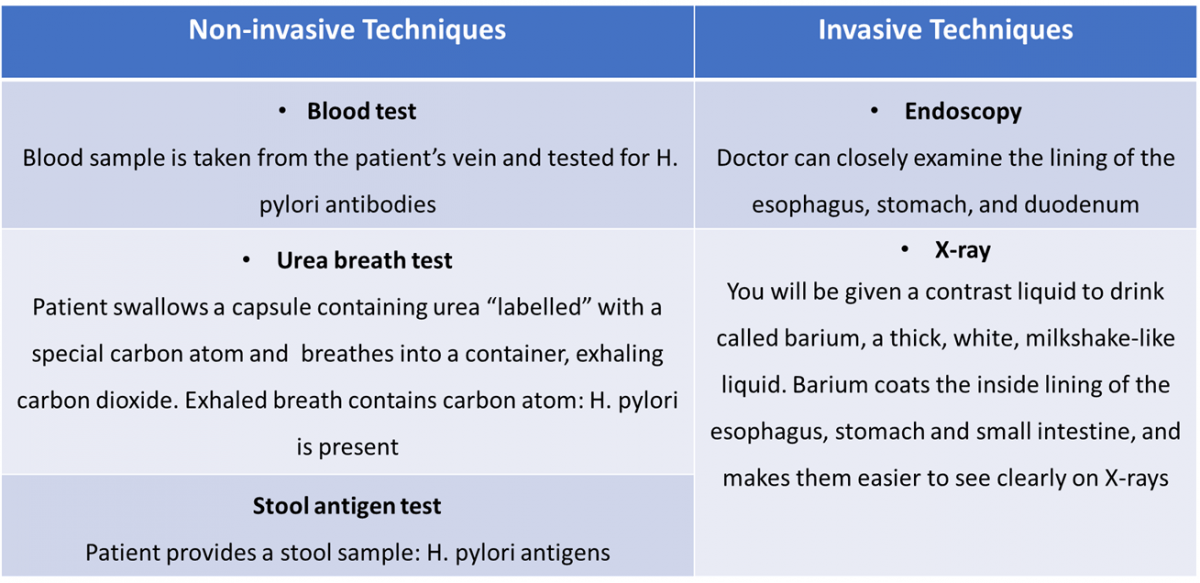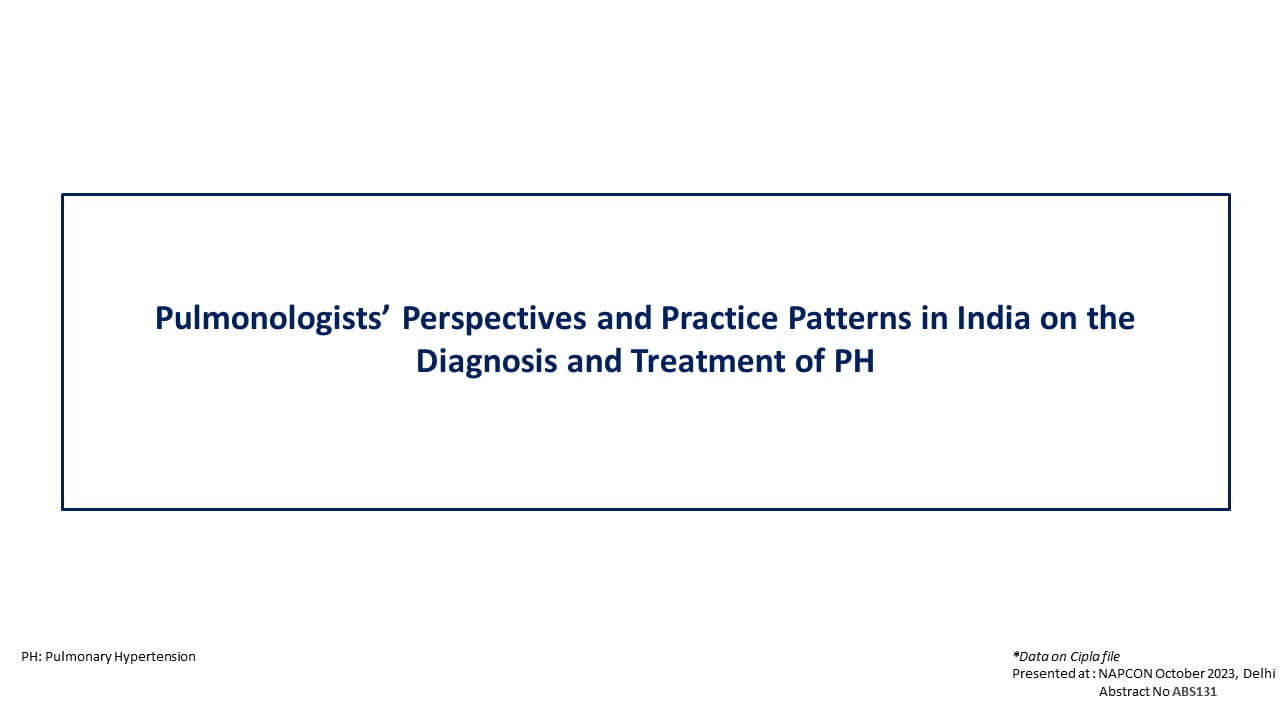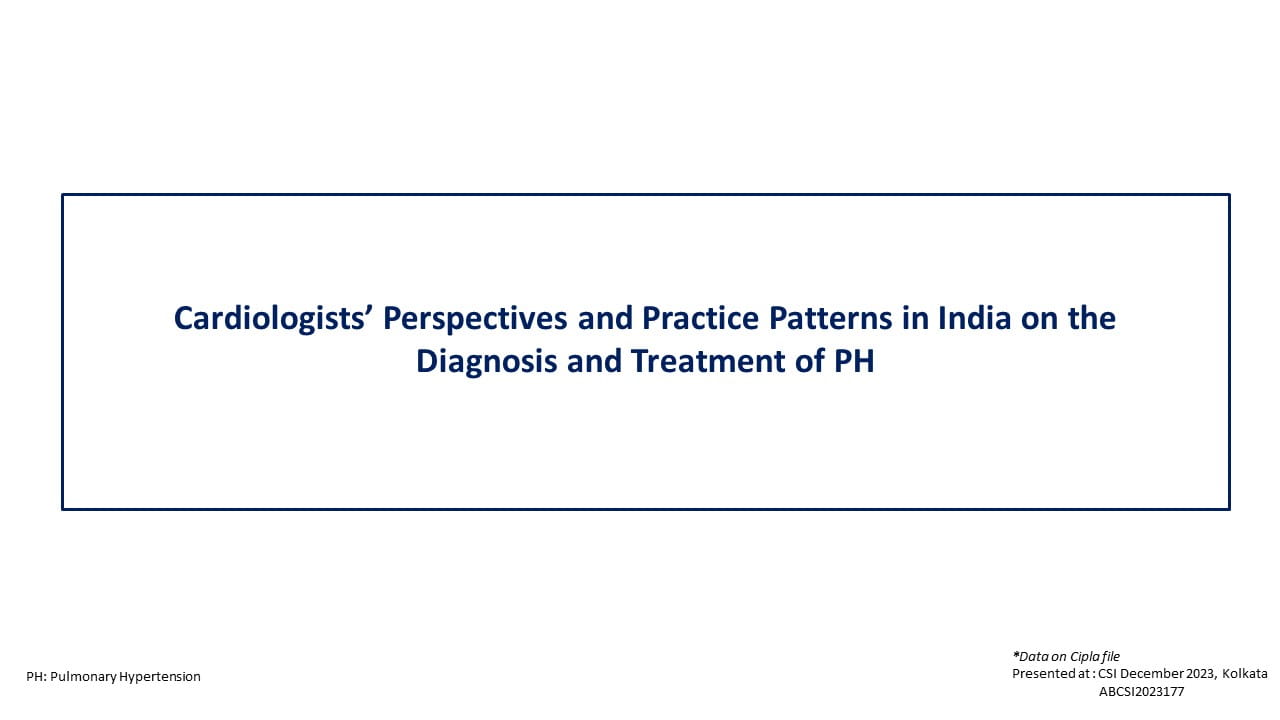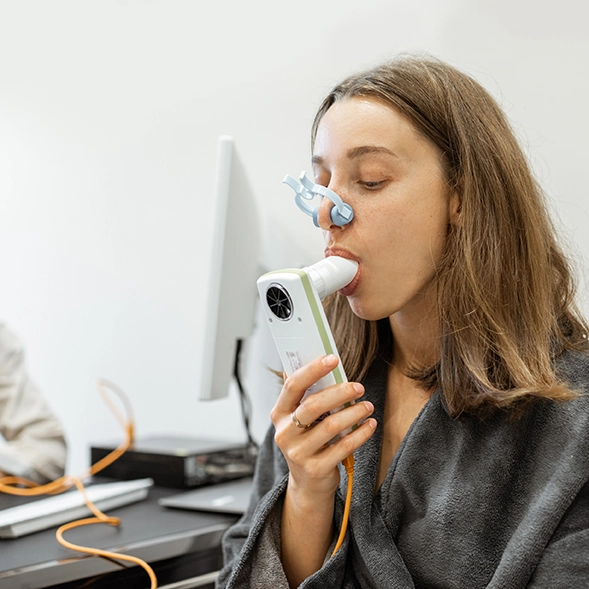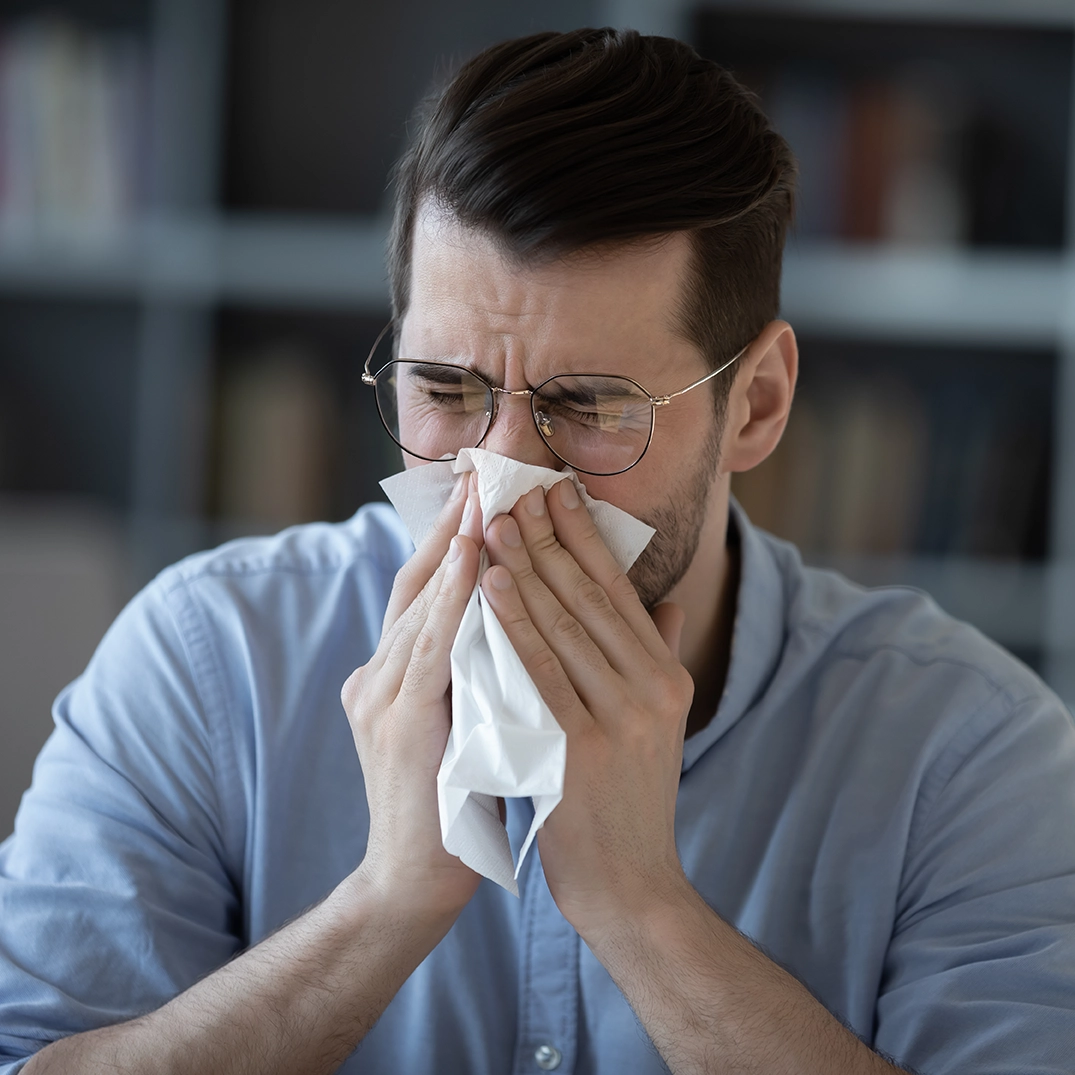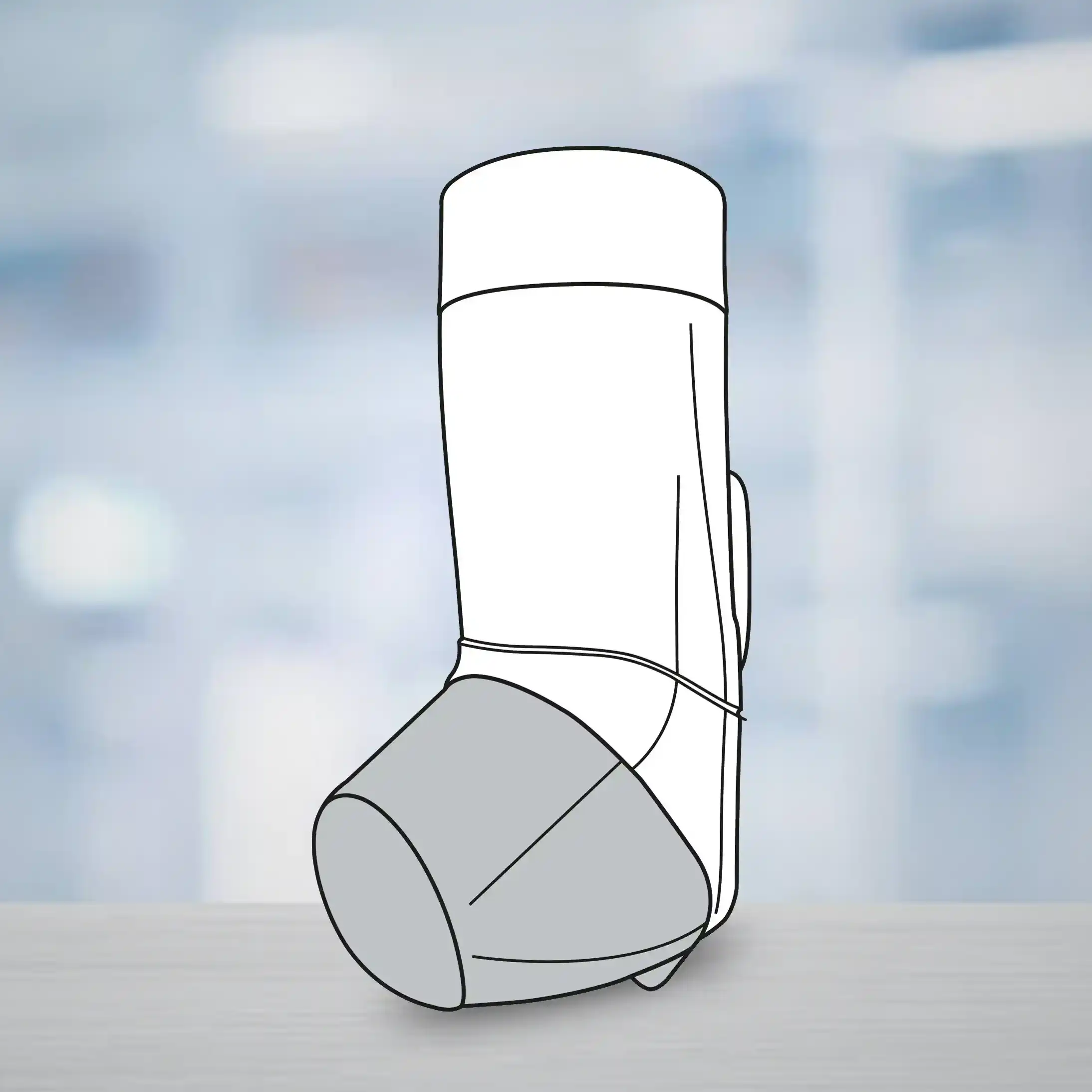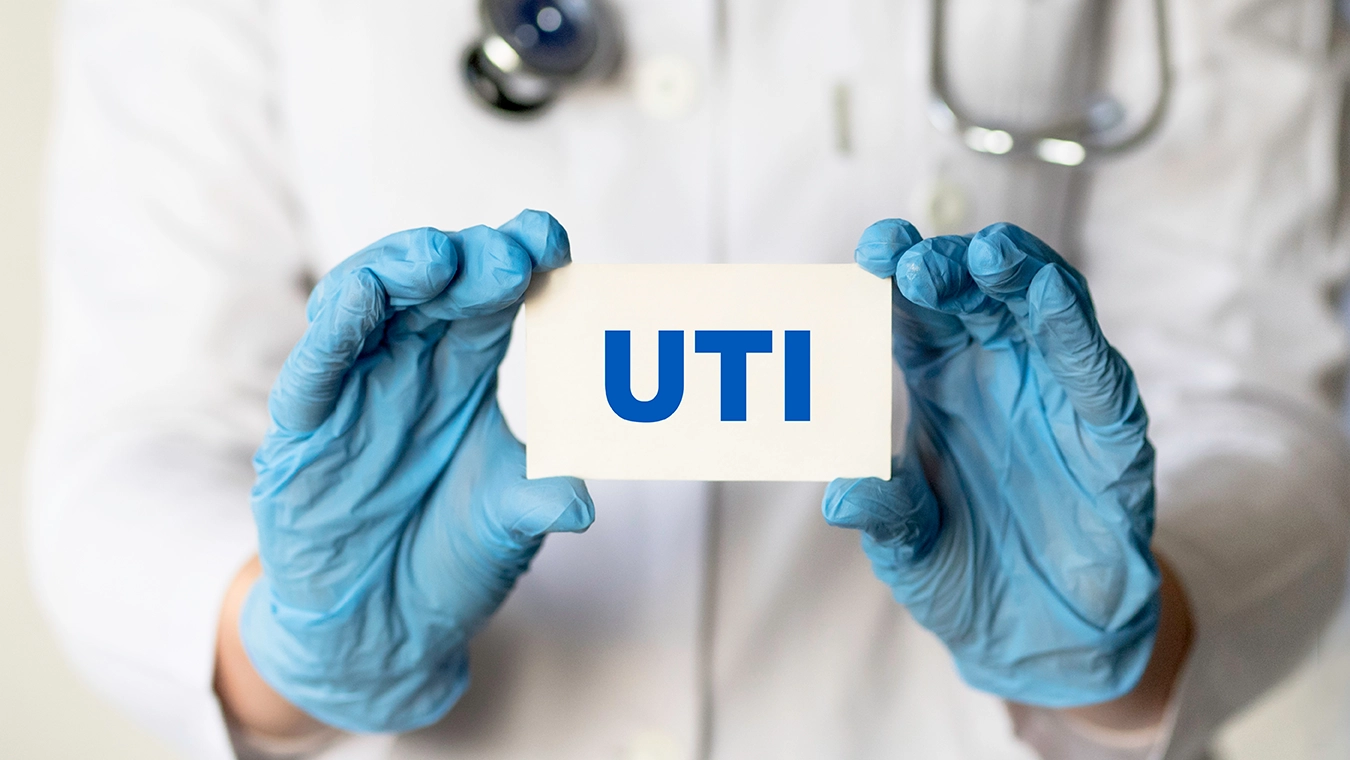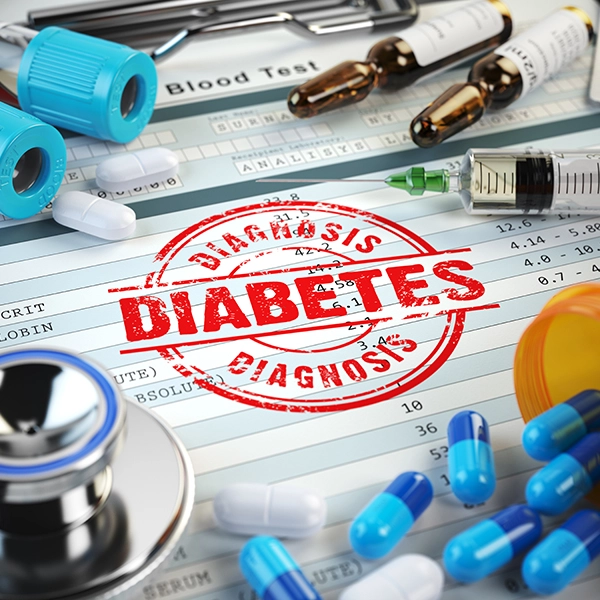What is Peptic Ulcer Disease (PUD)?
A peptic ulcer is a wound that forms in the lining of the stomach or intestine. Ulcers can develop when there is damage to the protective layer of the stomach. Peptic ulcer in the stomach is called a gastric ulcer while in the duodenum it is called a duodenal ulcer.
What Causes Peptic Ulcer Disease?
The two most common causes of peptic ulcers are:
1. Infection with Helicobacter pylori (H. pylori) bacteria.
2. Use of nonsteroidal anti-inflammatory drugs (NSAIDs), such as aspirin, ibuprofen, and naproxen
H. pylori and NSAIDs break down the protective mucus layer.
Who is at Risk for NSAID Induced Ulcers?
- Frequent users of pain killers
- People older than 65 years
- Previous history of peptic ulcers or upper gastrointestinal bleeding
- Being treated with anticoagulant drugs like warfarin, corticosteroids
- Consuming alcohol
Who is at Risk for Ulcers from H. pylori?
Only a small percentage of infected adults (5-10%) develop ulcers due to H. pylori infection. These factors increase the risk of ulcers in those infected with H. pylori;
- Smoking
- Alcohol use
- Being male
- Having cytotoxin-associated gene A (CagA)
What are the Symptoms of PUD?
The most common symptom of an ulcer is a burning pain in the stomach. This pain is usually felt between the breastbone and the belly button. Other common symptoms include:
- Bloating
- A feeling of fullness
- Hunger and empty feeling in the stomach often 1-3 hrs after a meal
- Belching
If any of the following symptoms appears, it indicates an emergency and the patient must seek immediate medical assistance.
- Black/ bloody stools
- Severe vomiting, which may include blood or the entire stomach contents
- Severe abdominal pain, with or without vomiting or evidence of blood
What are the Complications Associated with PUD?
If ulcers are left untreated, they can result in:
- Internal bleeding: Bleeding can lead to anaemia or severe blood loss resulting in black or bloody vomit or stools. Patient can require hospitalization in such situation
- Infection: Patients with PUD are at an increased risk of bacterial infection
- Obstruction: Swelling, inflammation or scarring may cause obstruction of food in the digestive tract
How is PUD Diagnosed?
What are the Treatment Options for PUD?
- Antibiotic medications to kill H. pylori: If H. pylori is found in your digestive tract, your doctor may recommend a combination of antibiotics to kill the bacterium. You'll likely need to take antibiotics for two weeks, as well as additional medications to reduce stomach acid.
- Medications that block acid production and promote healing: Proton pump inhibitors reduce stomach acid by blocking the action of the parts of cells that produce acid. Eg. omeprazole, lansoprazole , rabeprazole, esomeprazole, pantoprazole.
- Medications to reduce acid production: Acid blockers, also called histamine (H-2) blockers reduce the amount of stomach acid released into your digestive tract, which relieves ulcer pain and encourages healing. Eg. ranitidine, famotidine , cimetidine nizatidine.
- Medications that protect the lining of your stomach and small intestine: In some cases, your doctor may prescribe medications called cytoprotective agents that help protect the tissues that line your stomach and small intestine.
How can You Prevent PUD?
To help prevent peptic ulcers, avoid the following:
- Alcohol
- Common sources of H. pylori bacteria (e.g., contaminated food and water, floodwater, raw sewage)
- Long-term use of pain killers
- Smoking
References
- https://www.med.unc.edu/gi/faculty-staff-website/patient-education/patient-education/15BNSAIDSandPepticUlcers.pdf Last accessed on 14/04/2016
- http://www.nytimes.com/health/guides/disease/gastric-ulcer/risk-factors.html Last accessed on 15/04/2016
- http://www.mayoclinic.org/diseases-conditions/peptic-ulcer/basics/treatment/con-20028643 Last accessed on 14/04/2016
- https://www.kaahe.org/health/en/ArabicSampleModules/modules/gastro/gefm01a1/gefm0101/gefm0101.pdf Last accessed on 01/08/2016
- https://www.med.unc.edu/gi/faculty-staff-website/patient-education/patient-education/15APepticUlcerDisease.pdf Last accessed on 01/08/2016
- http://www.mayoclinic.org/diseases-conditions/peptic-ulcer/symptoms-causes/dxc-20231407 Last accessed on 01/08/2016
This is not a substitute to a doctor's advice and care. Please refer to your doctor for any further queries.


